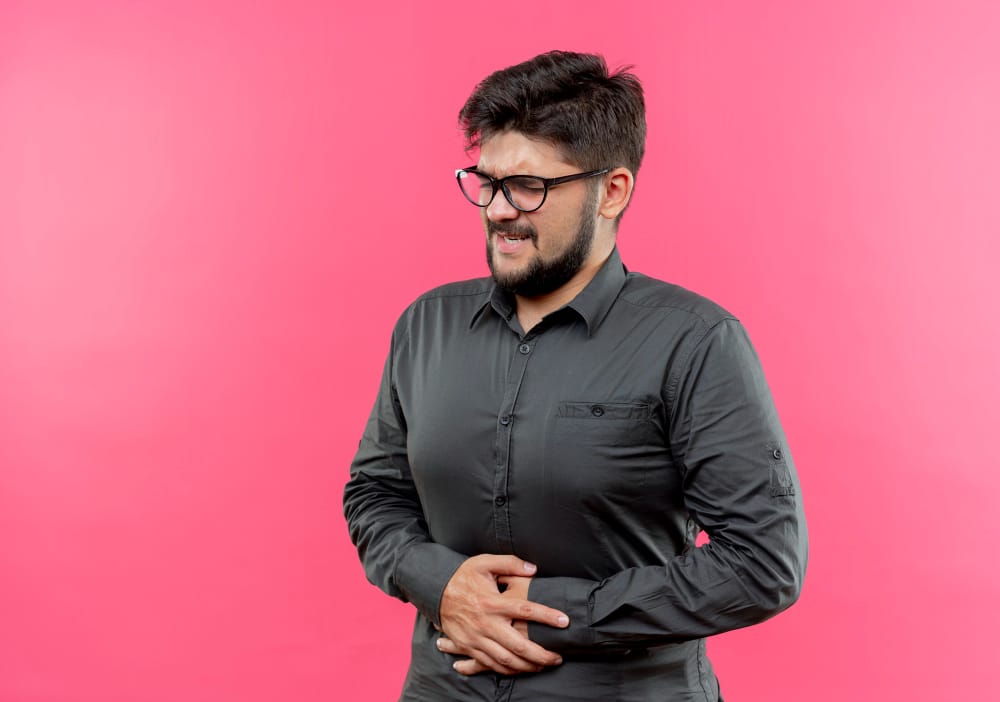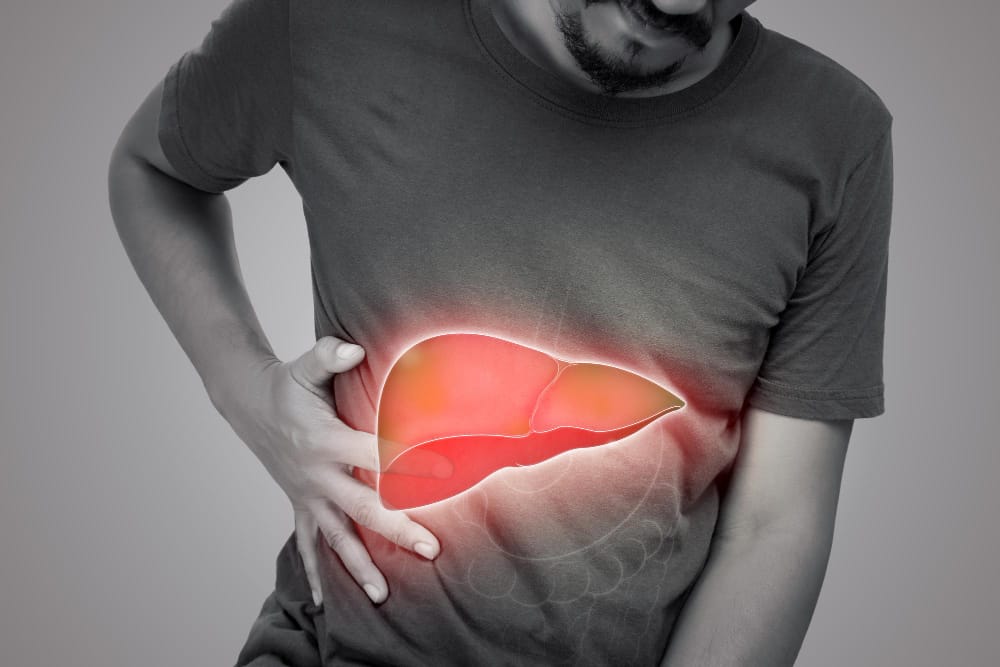How Smoking and Nicotine Damage Your Liver: The Hidden Link to Fatty Liver Disease


Written By: Aman Doda
Last Updated: 19/03/2025


- How the liver works and why it’s important
- The shocking connection between smoking, nicotine, and fatty liver disease
- How quitting smoking helps reverse liver damage
- A real-life success story of someone who quit smoking and transformed their health
- Practical steps to improve your liver health today
- 01: Introduction: Your Liver – The Silent Hero of Your Body
- 02: How Your Liver Works & Why It’s Critical for Your Health
- 03:The Hidden Link Between Smoking, Nicotine, and Fatty Liver Disease
- 04: How Smoking Leads to Permanent Liver Damage (Cirrhosis & Liver Failure)
- 05: Can Quitting Smoking Reverse Liver Damage? Here’s What Science Says
- 06: Real-Life Story: How Dr. Rajesh Quit Smoking and Took Back His Health
- 07: FAQs – Answering the Biggest Questions About Smoking and Liver Health
- 08: Conclusion: Protect Your Liver, Protect Your Life
- 09: Disclaimer
Your Liver – The Silent Hero of Your Body
Most people think of their lungs, heart, or brain when they talk about health. But there’s another superhero organ working 24/7 behind the scenes—your liver.
Your liver is like a master filter for your body. It cleans your blood, removes toxins, and processes everything you eat, drink, or inhale. But what happens when you keep exposing it to cigarette smoke and nicotine?
💡 The Truth: Smoking doesn’t just harm your lungs—it silently damages your liver, increasing your risk of fatty liver disease, liver inflammation, and long-term liver failure.
🚨 Did You Know?
✔ Smokers have a 50% higher risk of developing fatty liver disease than non-smokers.
✔ Nicotine damages liver cells, even in people who don’t drink alcohol.
✔ Quitting smoking can help your liver heal and reduce fat buildup.
Most smokers never think about their liver health until it’s too late. This blog will break down everything in simple terms so you can understand the risks—and what to do about them.
How Your Liver Works & Why It’s Critical for Your Health
Your Liver: The Body’s Natural Detox Machine
Your liver is like a powerful factory inside your body, doing three main jobs:
1. Cleans Your Blood
🔹 Filters out toxins, chemicals, and waste from everything you eat, drink, or inhale.
🔹 Neutralizes harmful substances like alcohol, nicotine, and pollution before they damage your body.
2. Breaks Down Food & Stores Energy
🔹 Helps digest fats, proteins, and sugars, turning them into fuel.
🔹 Stores extra energy so your body can use it when needed.
3. Protects Your Body from Disease
🔹 Produces special enzymes that help break down medicines, alcohol, and nicotine.
🔹 Fights infections and prevents toxins from harming other organs.
Everything you put in your body—food, drinks, cigarettes, and even air pollution—passes through the liver. When you smoke, your liver is forced to work harder to process the toxins, leading to long-term damage.
Imagine your liver is like a water filter in your home. If you keep pouring dirty water (toxins from smoking) into it, the filter clogs up and stops working properly. This is what happens to your liver over time.
Your liver is designed to keep you healthy—but smoking overloads it with harmful chemicals, leading to serious problems like fatty liver disease, inflammation, and scarring (cirrhosis).


The Hidden Link Between Smoking, Nicotine, and Fatty Liver Disease
Most people think fatty liver disease only happens to people who drink too much alcohol or eat too much junk food. But here’s the shocking truth:
🚨 Smoking is a major hidden cause of fatty liver disease—even in people who don’t drink alcohol!
Still struggling to quit?
Our Free Ebook reveals the suprising mental root cause of smoking addiction- and how to overcome it.
Download it here to take the first step.
What is Fatty Liver Disease?
Fatty liver disease happens when too much fat builds up inside your liver cells. This makes it hard for the liver to do its job, leading to:
🔹 Liver inflammation (swelling and damage)
🔹 Scarring (fibrosis), which can turn into cirrhosis
🔹 Liver failure, if the damage continues for years
There are two types of fatty liver disease:
1️⃣ Alcoholic Fatty Liver Disease (AFLD) – caused by heavy drinking.
2️⃣ Non-Alcoholic Fatty Liver Disease (NAFLD) – caused by obesity, smoking, and metabolic issues.
Even if you don’t drink, smoking alone can trigger fatty liver disease by increasing fat buildup and inflammation in your liver.
How Smoking Triggers Fatty Liver Disease
1. Nicotine Increases Fat Storage in the Liver
Nicotine—the addictive chemical in cigarettes and vapes—tells your body to store more fat in the liver.
🔹 It slows down fat metabolism, making it harder for the liver to break down fat.
🔹 Over time, fat accumulates, leading to fatty liver disease.
Studies show that smokers are twice as likely to develop fatty liver disease compared to non-smokers.
2. Smoking Reduces Oxygen Supply to the Liver
Your liver needs oxygen-rich blood to function properly. But smoking reduces oxygen levels, making it harder for the liver to:
🔹 Flush out toxins (like nicotine and harmful chemicals).
🔹 Burn stored fat, leading to fat accumulation.
🔹 Repair damaged liver cells, increasing the risk of disease.
Imagine your liver is a factory that needs a steady supply of oxygen to work. Smoking cuts off the oxygen, forcing the factory to slow down—and fat starts piling up inside.
3. Cigarette Toxins Cause Liver Inflammation
Cigarette smoke contains over 7,000 toxic chemicals that put stress on the liver. These toxins:
🔹 Trigger inflammation that damages liver cells.
🔹 Overload the liver, making it work overtime to remove harmful substances.
🔹 Increase scarring (fibrosis), which can lead to permanent liver damage.
Smokers with fatty liver disease develop liver scarring faster than non-smokers, increasing the risk of cirrhosis and liver failure.


How Smoking Leads to Permanent Liver Damage (Cirrhosis & Liver Failure)
1. How Fatty Liver Turns into Cirrhosis
At first, fat builds up inside the liver. But over time, the constant stress from smoking toxins makes the liver inflamed.
🔹 The liver tries to heal itself, but the repeated damage leads to scarring (fibrosis).
🔹 Over time, these scars replace healthy liver tissue, stopping the liver from working properly.
🔹 This scarring is called cirrhosis—a serious, often irreversible condition.
Studies show that smokers with fatty liver disease are 3X more likely to develop cirrhosis than non-smokers.
Your liver is like a sponge, soft and flexible, able to absorb toxins and clean the blood. Cirrhosis turns it into a stiff, damaged rock that can no longer do its job.


2. The Silent Danger: Liver Failure & Increased Risk of Cancer
When cirrhosis gets worse, the liver loses its ability to function completely—this is called liver failure.
🚨 What Happens in Liver Failure?
❌ Your body can’t remove toxins, leading to severe health problems.
❌ Your blood doesn’t clot properly, causing excessive bleeding.
❌ You experience jaundice (yellowing of skin and eyes) due to toxin buildup.
❌ Your risk of liver cancer increases drastically.
Smokers with cirrhosis have a 2X higher risk of developing liver cancer compared to non-smokers.
Your liver is like a car engine. Smoking is like pouring dirty oil into it every day. Over time, the engine breaks down—and at some point, it’s beyond repair.
Can Quitting Smoking Reverse Liver Damage? Here’s What Science Says
Most smokers wonder: “If I quit smoking, will my liver heal?”
The answer is YES—but only if you act early.
Your liver is an amazing organ that can repair itself—but only up to a certain point. If the damage is mild to moderate (fatty liver, inflammation, or early-stage fibrosis), quitting smoking can reverse most of the harm. However, if the damage has progressed to cirrhosis, the liver cannot fully heal, and the risk of liver failure remains high.
How Long Does It Take for the Liver to Heal After Quitting Smoking?
Here’s a timeline of what happens when you quit smoking and how your liver starts recovering:
🕒 Within 24 Hours:
✅ Carbon monoxide levels drop, allowing more oxygen to reach your liver.
✅ The liver works more efficiently to filter toxins.
🕒 Within 1 Week:
✅ Blood circulation improves, giving the liver better access to nutrients and oxygen.
✅ Inflammation levels start decreasing, lowering stress on the liver.
🕒 Within 1 Month:
✅ The liver begins breaking down stored fat more effectively, reducing fatty liver buildup.
✅ Detoxification improves, meaning your body can remove harmful substances faster.
🕒 Within 6 Months to 1 Year:
✅ Fatty liver may completely reverse if no other risk factors (like obesity or alcohol use) are present.
✅ The liver regenerates new, healthy cells, improving overall function.
🕒 5+ Years After Quitting:
✅ Risk of liver cancer drops significantly.
✅ If cirrhosis hasn’t developed, the liver may return to near-normal function.
Studies show that people who quit smoking have a 40% lower risk of liver disease progression compared to those who continue smoking.
Your liver is like a worn-out sponge. If you stop squeezing it (smoking), it can slowly expand back to normal—but if the damage is too severe (cirrhosis), it becomes stiff and cannot recover.


Can the Liver Heal Completely?
It depends on how much damage has already been done:
✔ If you have fatty liver disease → Your liver can fully heal.
✔ If you have early-stage fibrosis (mild scarring) → Your liver can partially heal.
✔ If you have cirrhosis (severe scarring) → The damage is permanent, but quitting smoking prevents further harm.
In smokers with cirrhosis, quitting smoking lowers the risk of liver failure by 50% and improves life expectancy.
Get Inspired by Dr. Rajesh’s Quit Smoking Journey
Many smokers struggle with the fear of quitting, wondering if they can truly break free from cigarettes. Dr. Rajesh successfully quit smoking, and his journey is proof that it’s possible for anyone.
Why Quitting is the Best Decision for Your Health
Quitting smoking doesn’t just help you feel better—it reduces your diabetes risk, stabilizes blood sugar, and protects your organs from long-term damage.
📌 According to a study by the National Institute of Diabetes and Digestive and Kidney Diseases, quitting smoking improves insulin sensitivity and lowers diabetes complications within weeks.
Still struggling to quit?
The biggest challenge most smokers face isn’t the cigarette—it’s the mental dependency on smoking.
🎥 Watch this video to understand the real reason behind smoking addiction and how to break free:
FAQs – Answering the Biggest Questions About Smoking and Liver Health
Yes. Smoking increases fat buildup in the liver, reduces oxygen supply, and triggers inflammation, leading to fatty liver disease—even in non-drinkers.
If caught early, fatty liver disease can fully heal after quitting smoking. However, severe liver scarring (cirrhosis) is permanent, but quitting prevents further damage.
- Within weeks: Inflammation reduces.
- Within months: Fat buildup starts reversing.
- Within years: The risk of liver disease drops significantly.
Yes. Even nicotine from vapes, patches, or gum can increase fat storage and inflammation in the liver.
Yes. Alcohol and smoking together speed up liver damage, increasing the risk of cirrhosis and liver failure much faster.
- Fatigue and low energy
- Bloating or discomfort on the right side of the stomach
- Yellowing of the skin or eyes (jaundice)
Yes! The sooner you quit, the faster your liver can start healing.
Most people struggle because they focus on breaking the habit instead of fixing the mental dependency.
Watch This : Understanding the root casue of smoking
Conclusion: Reclaim Your Freedom, Joy, and Life
Smoking doesn’t just harm your health—it steals precious moments of joy, fun, and connection that make life worth living. From limiting your ability to participate in recreational activities to creating emotional and social barriers, smoking quietly robs you of the freedom to fully enjoy life. But here’s the good news: you have the power to take it all back.
Quitting smoking isn’t just about putting down cigarettes; it’s about reclaiming your identity, your vitality, and your relationships. It’s about saying yes to the things you love—whether it’s dancing at a family wedding, playing with your kids, or hiking to a breathtaking viewpoint without feeling out of breath.
💡 Every moment you spend smoking is a moment you could spend living your best life. What will you choose?
You might feel overwhelmed by the idea of quitting, and that’s completely normal. But remember: you don’t have to do it alone. Thousands of people, just like you, have transformed their lives with the right guidance and support. You can be next.
Understanding the Root Cause and Breaking Free from Smoking
By now, you understand how smoking impacts your sexual health, confidence, and overall well-being. But quitting is not just about willpower or temporary fixes—it’s about addressing the real root cause of why you smoke.
Most people struggle to quit because they focus only on the physical habit, without realizing that the real problem is mental dependency. Until you break free from this false association with cigarettes, cravings will keep pulling you back.
So, how do you truly quit smoking for good—without stress, struggle, or relapse?
Conclusion: Protect Your Liver, Protect Your Life
Your liver is a silent hero, working day and night to keep your body clean, process nutrients, and protect you from disease. But smoking overloads it with toxins, causing fat buildup, inflammation, and long-term damage.
💡 The good news? It’s never too late to quit.
✅ If you quit smoking early, your liver can heal, reversing fatty liver disease.
✅ Even if you already have liver damage, quitting prevents it from getting worse.
✅ The sooner you quit, the better your overall health and longevity.
🚀 Take the First Step Today!
👉 Join the FREE Masterclass Now to learn a proven, stress-free method to quit smoking for good.
Disclaimer
I am a health and wellness coach with expertise in nicotine addiction, but I am not a medical doctor. This blog is for educational purposes only and should not be considered medical advice for smoking-related diseases or other health conditions. If you have existing medical concerns, please consult a qualified healthcare provider for personalized guidance
Share via:
